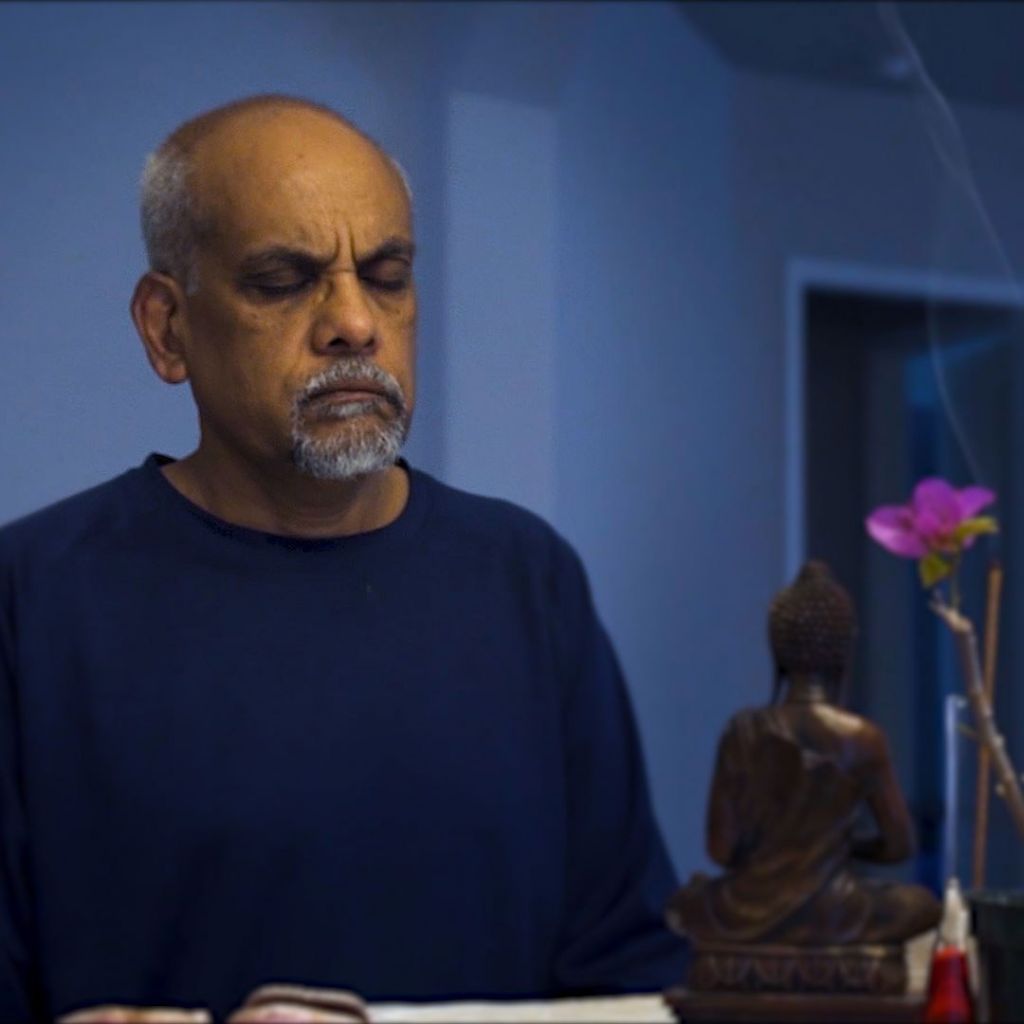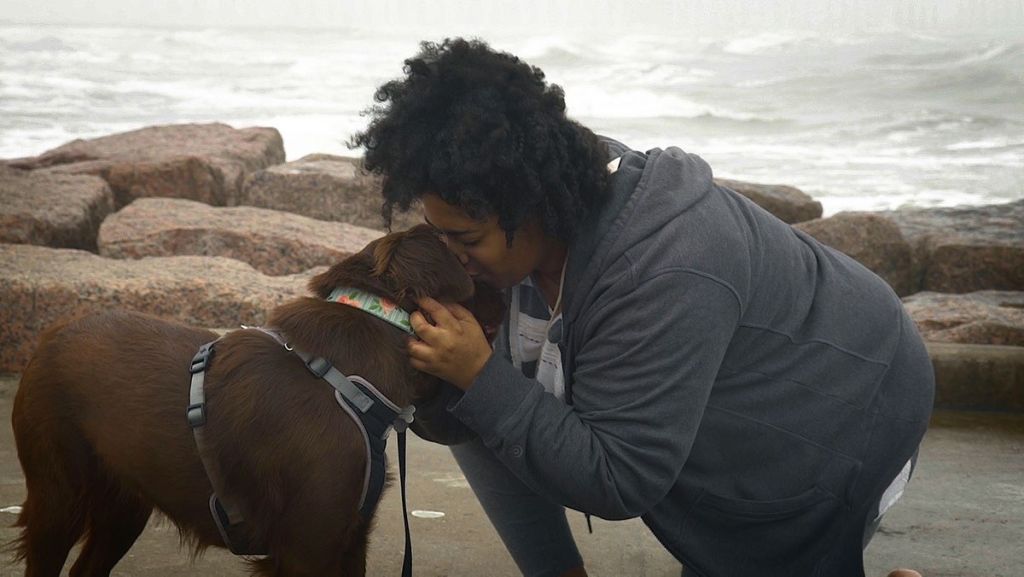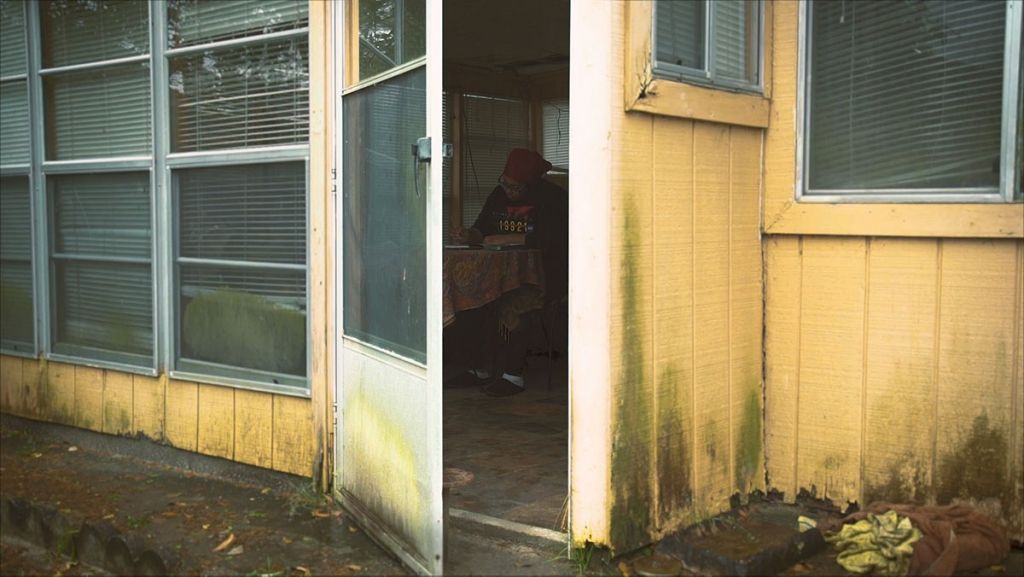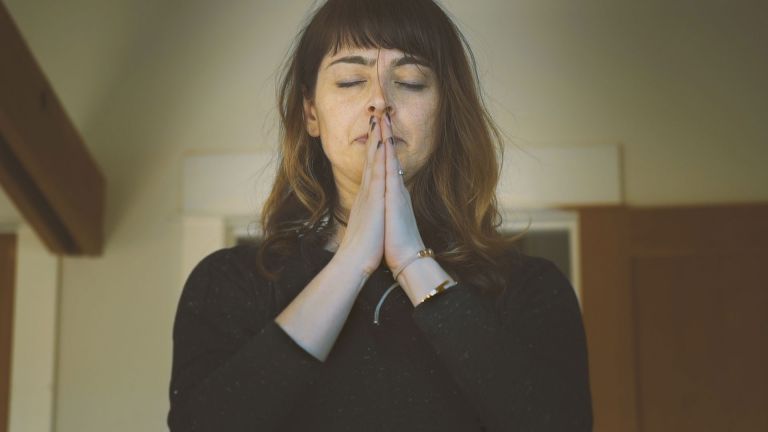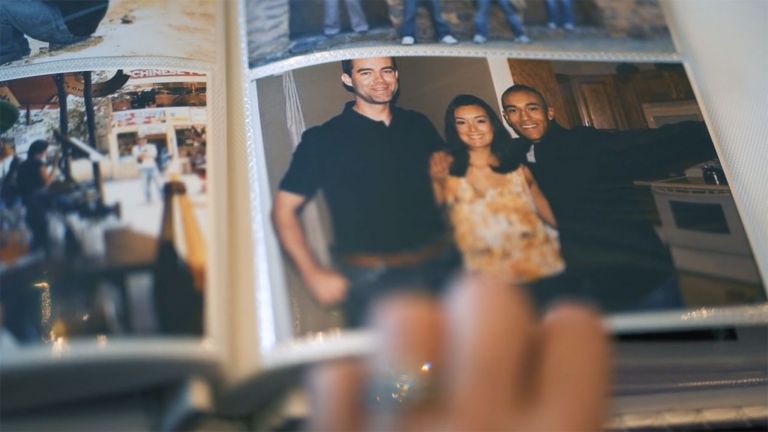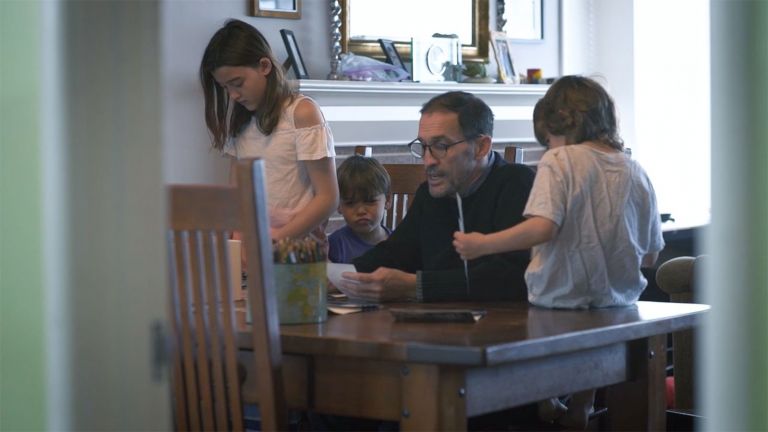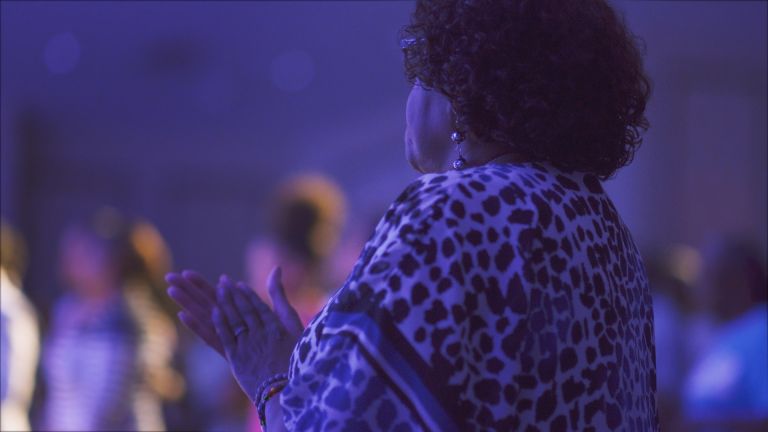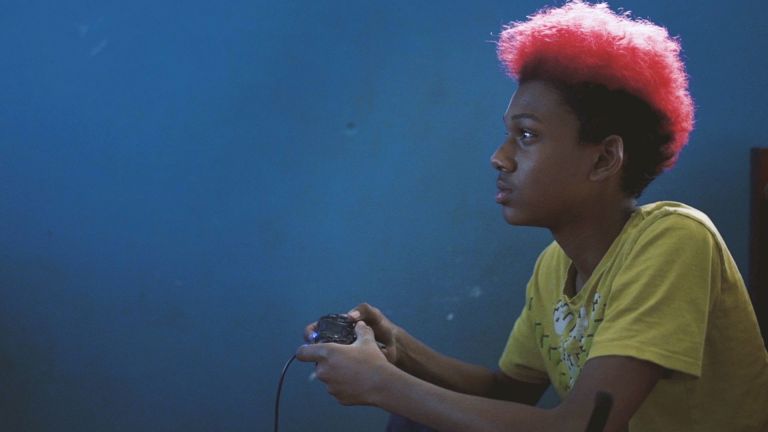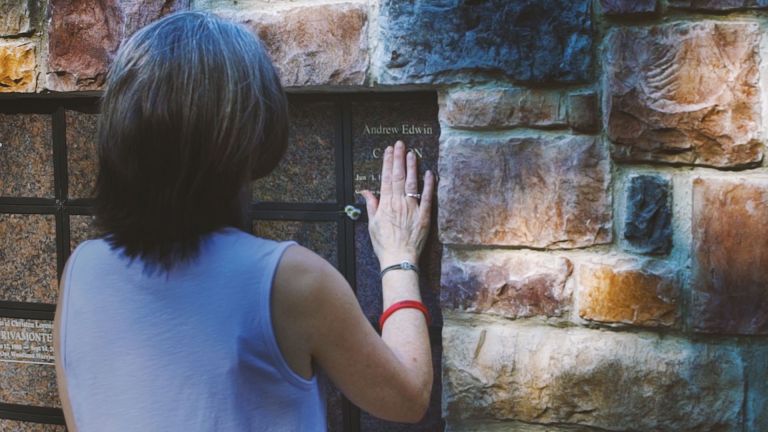Khan Family
Asia and Carmichael Khan’s mother/wife, Rose, died in a car accident in 2006. Asia was 14 at the time of her mother’s death. Asia shares how she struggled to process the sudden death of her mother and to navigate life without her. Carmichael speaks to the challenges of becoming a sole parent to a teenage daughter, as well as how his wife’s death has shaped his views on life.
CARMICHAEL: My wife.
ASIA: My mom.
ASIA: I don’t think it sunk in until the smell of her faded. Once I couldn’t smell her anymore, I think I finally registered her being gone. Dad … yeah, we handled I differently. I was just more so sad and trying to hold on to things. I used to wear her clothes. Sometimes I’d just open her drawers and smell her stuff, but over time that would fade too. He had a lot more anger about the situation he blamed the car for her death. He hated that car.
CARMICHAEL: Initially I was shocked. A lot of it sometimes maybe was anger. Certainly I was afraid. Initially, there was a lot of fear... some anxiety on my part in terms of what would happen next.
ASIA: I think Dad was in a place … he was pretty vulnerable. I don’t think I’ve ever seen Dad vulnerable like that before, ever, until mom died.
CARMICHAEL: Sometimes I’m uncertain about parenting stuff with Asia. I may make a wrong decision without having someone to bounce off the idea on. I may, um, not pick up on some of the cues, um, that she may be saying, um, something that I need to listen to. But, it brought Asia and myself closer.
ASIA: I can’t imagine where I would be without Dad. He did everything he could to do right by me and mom. As time went on, the pain dulled, but we would have moments of it being, just slicing into us. It felt like something was missing, but it was something we can go on with.
CARMICHAEL: I would say, all told, about five years to get back to normal um, uh cadence of uh living and a normal rhythm of life. And, it’s never over. You just learn to walk with and manage the wound that you have.
ASIA: It doesn’t have to be the end of everything. It doesn’t mean that your life is over. It’s just your life will be different. It does not mean you’ll never be happy again because you will. It’s definitely difficult, but you’ll smile again eventually.
After the first two years, we kind of, it felt like something was missing, but it was something we can go on with. Of course, we still missed her. We still had our moments of crying and stuff, but I think we were able to settle in about two years after she died. The pain dulled, but we would have moment of it being, just slicing into us.
Like, as time went on, it got a lot easier to address or at least, you know, sit on for a while, but there were moments, maybe like significant days, her birthday or just certain events, that would kind of trigger melancholy for a while. But, I’d say, yeah, the pain got a bit duller, but it was still there. Just a different kind of pain.
Rose was, what do you call it, a news junkie like myself. So I would um not have to listen to the news. When I come home, she would already have it summarized in her head and told me, tell me you don’t need to listen to this show or that show because here are the five points you need to know. And she would be right! It’s like, okay! Um, because I’m also a news junkie. But she would have all that stuff done, already typed up and written and here are the five points. And I would say okay, well that’s what we want.
So that kind of ah trusting conversation across the breakfast table with someone, um, I don’t have ... She was very astute, you know, in interpreting, interpreting news events. And stuff like that. And I would, ah, I miss that, you know. ’Cause everybody has that kinda sixth sense about these things. But she would ... I miss that, yes. She’d be like a walking newspaper! Yeah.
Grief is something that uh, you never know when the grief burst happens and it just arises, and um, you trust that uh, it is temporary, and uh, you don’t know what is the trigger.
Sometime it’s spontaneous, sometimes it’s an event or an object that uh, reminds you of something. A song, a smell, uh, a flavor, and uh, you just let it uh, roll by but at the same time um, I would um, I would, I would understand what’s happening and just let it, let it go.
Um, grief bursts are just by nature aren’t predictable, and um, I, I wasn’t surprised, I, I became, I became accustomed to them. You know, to expect the unexpected, um, wave, that would overcome you.
And that it would happen in the weirdest places. I might be at a public festival then I see a face or a gesture that reminds me of her, like if she’s there, um, initially, and then um, I would be disappointed. I would remember that this is an event, and or restaurant or a place that we had been to before. And I was just maybe seeing things. Not in the sense that I was making mistake, but I was recalling a memory, and uh, and that would happen from time to time. You know.
It doesn’t have to be the end of everything. It’s, it can definitely be something that’s really difficult, but that does not mean you can’t be happy anymore. There is always something to smile about, even in such a really, really difficult or sad situation. Don’t think you’ll never be happy again, because you will. It won’t be the same or be ... It’ll be different, but it’s still ... You’ll still smile again eventually. It doesn’t mean that your life is over. It’s just your life will be different.
I think the biggest surprise I had about my grief was how it would just come out of nowhere. Like, I would just be minding my own business, just doing my daily routine, and then something would just randomly hit me and I would break down. I think I was shocked at how even after years of dealing with it, and I think I’m okay, like, I can, I can handle this, there will always be something that gets me when I least expect it, when I’m, like, I’m just suddenly vulnerable and everything’s out in the open and I just don’t know how to ... I mean, I eventually collect myself, but I think that’s what shocks me, just how instant a shock or, or realization or a feeling can just happen out of nowhere.
I woke up, um, earlier because my, I got a call where that someone called the house phone, and I picked it up and it was Dad. And normally he was home at that time so I was like, “Where did he go?” Apparently he had gotten a call, um, saying mom was hurt, or injured, on her way home from her, um, second job, and, uh, that he was at the hospital with her and he was just trying to figure things out as he went along. . I figured okay maybe it’s like a fender bender or something, maybe she broke her ankle or maybe it was something little. So I went to school like normal but I just had this feeling that something was wrong, it just felt wrong. And I found out, because one of her friends picked me up from school and said that she’s at the hospital and it was a bit more serious than they anticipated. When we got there, um, I had a nurse that like, was a doll, explain to me what state my mother was in. And as soon as I saw the nurse show me the wires and the tubes coming out of the doll’s mouth, I knew something was really bad. It was, um, it was like a slow realization that something was gonna be irreversible, that we’ll never come back from. the next day she was pronounced dead. There was nothing else, the swelling wouldn’t go down on her brain. Um, it’s just crazy because she was there the day before, she had called me, um, before her shift started and asked me if I did my homework and told me to have a good night and she’ll see me, you know, later, like it was just normal routine. And the next day, it was just completely, you know, just never be the same.
There was no sense (slight laugh) to make out of it. I just had to accept the mystery of it all. have done to prevent it. And uh examine with um fine-tooth detail in almost a forensic-type manner. Um was there something that I could have done to um, intervene in the course of events with regard to uh, you know the vehicle. Uh, the maintenance of it, the maintenance of it, like uh, was it something we missed um, that caused uh, her to veer off the road and cause this accident. But um, there, there was uh, there was nothing that I could uh, come up with as an answer.
Um, so actually it was just a sense of coming to terms with the, the unknown. There’s no going past in a sense, because um, it’s a nightmarish type of scenario. If you start to think in terms of, “Why was somebody in a fairly normal course of events during the day and the night, suddenly not come home?”
And why did this happen, um, is an eternal mystery. So I would just have to um, work with that, and uh, walk wounded, wounded. You know I’m heart-broken but um, able to, to manage. , I was looking for an explanation. Right? That you needed something to say, 'Oh, this is what caused the accident.' But there was no such thing and that was painful.
But um, that’s the, that’s the kind of overwhelming thing. You kind of start doing a lot of research and people tell you, you get a lot of anecdotal evidence, 'well maybe you should try this, maybe you should try it,' people suggest stuff. But um, it became a fruitless exercise. And then I had to come to terms with it like, “OK, so death happens. And there does not have to be a reason.” Who accorded you the privilege of deciding well, this must be reasonable. Death happens.
Life happens and death also happens and that’s it. There’s any kind of you know, um, any, any reason to, to, to be angry about it, to be disturbed about it, it’s just what it is. And this is the nature of human life, we have um, a limited time, in this, this experience and we just need to make the best of what we have.
Toto would wait for her every day. She would come home from work he would just be wagging his tail by the laundry room door, knowing that she was gonna come home. And I miss that too, how excited he would get. She was his favorite, (Laughs). He was the family dog, but he was still her dog. He would still wait for her to come home, on the dot, by the laundry room door and she would never come in. And he’ll just kind of get a little disappointed and he’ll move on to something else. But he did it every day.
We felt guilty that Toto would never, our dog would never understand why she wouldn’t come back, he couldn’t understand. It affected him and he was already aging when she died, he was 10 years old when she died. And, um, he, (Laughs), that’s not like that stopped him from living, he died at 18. But, um, just not being able to explain to our beloved pet, why isn’t, your mom isn’t coming back, your human mom. You know?
I miss just- just hearing her walk around the house. You know? She was a very petite woman of 5’1”, ( Laughs), um, so she’d always walk quickly for some reason, like a little shuffling, shuffling around the house. And you know, she would talk on the phone a lot and I always liked hearing her in the background, even if I was trying to do something. I still liked just hearing her voice in the background. I would miss when I would come home from school, because she worked two jobs, and one was in the day and one was, uh, over night and she would usually be home by the time I would get back from school, uh, usually middle school. And I would find her in my room upstairs sleeping on my bed, because my room was the coolest room in the house during the summer and because I have two vents, and she would just be asleep on my bed and I would be like, “Oh, there she is, on my bed again.” Not like it mattered, but I always found that kind of adorable. she’d just be kind of like snoring with her little eye patch on to cover her eyes and she’d have my blanket. I just thought it was weird. And even my dog would be upstairs in the same room, just sleeping like by the bed, like protecting her or something. Heck, I even miss when she would get mad at my r-, you know, when my room was messy. Even the embarrassment I miss. She would even, we would go to the grocery store and she would hold my hand in public and she’ll give me these little puppy eyes like, I’m like, “Mom,” I’m like, “come on,” and she’s just like, “Hold my hand.” And I’m like, “No, mom, we’re in public,” and she’ll start making fake tears and sniffing and like, sniff, sniff, and I’m just like, “Oh God, okay fine, Mom.” She was just smiling throughout the store while she held my hand and I’m just like ... I miss that too.
People didn’t understand that grief affects everything. They think you’re just gonna be sad sometimes and that’s it. Like when you think about them. No, you’re pretty sad during almost everything you do, depending on the person.
But, it could just be the most minuscule thing. Just looking at a plate she used the other day just would make me sad. Looking at a show that I watched with her one time would make me sad. And they just thought it would only be things, like, obviously related to her, but I don’t think they realized that anything remotely close thing that I might link to her would make me sad.
Um, like just being in a place I shared with her, or just seeing someone else with their mom laughing or carrying on would make me sad. And I think they just thought it was a selective experience, but it, it was, it’s part of your every day, it’s something you deal with when you wake up in the morning and go to sleep with. It’s not something you can just turn on and turn off.
And they would think that after a certain time period, you’d just be like, you know, “That’s it. You’re good.” But, you know, you’ll always miss them, but it’d be over, and I don’t think they understood how much of a burden it is, or how it’s a part of you. I think that’s what they don’t understand. They just thought it was a time limit. And it’s not.
